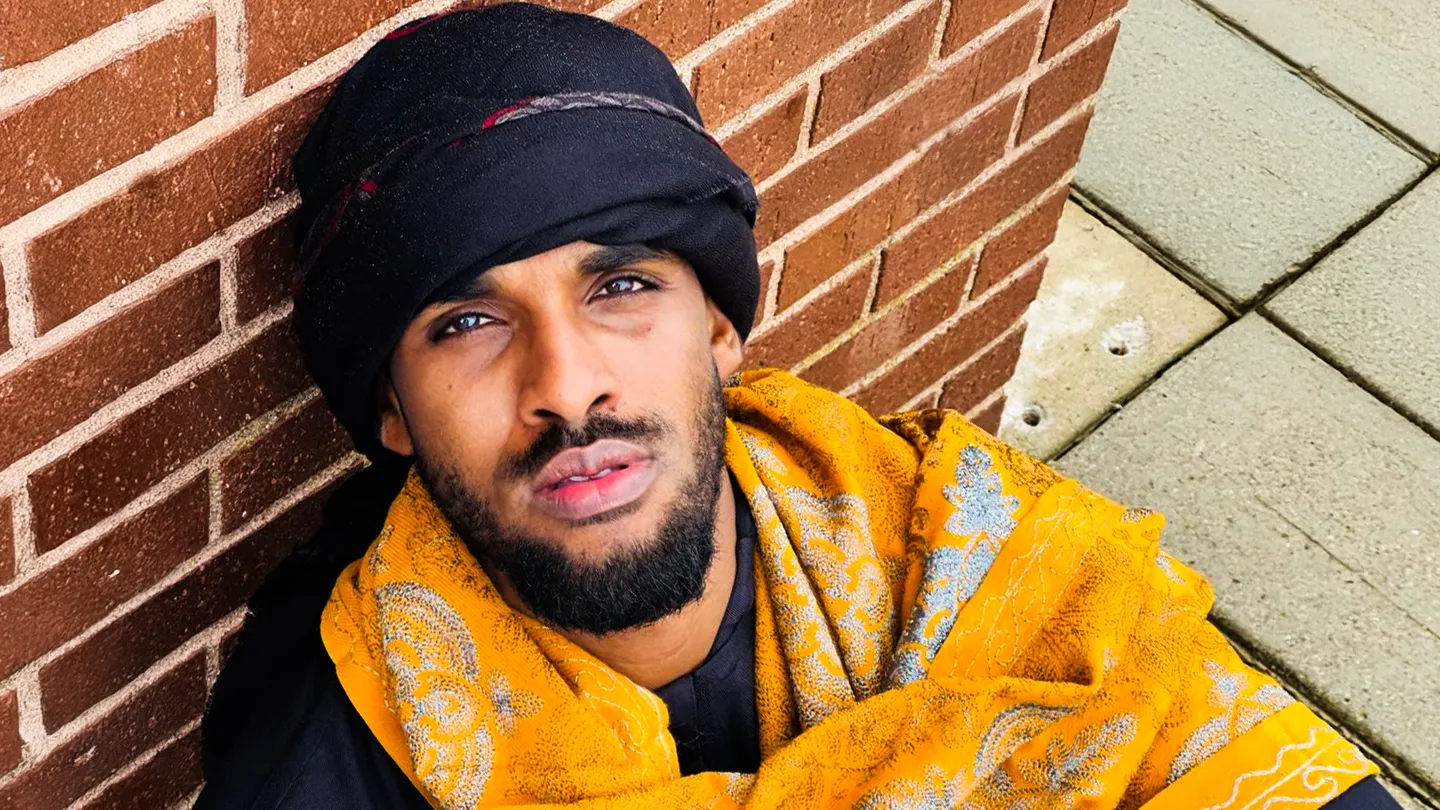Culture, Society & Insights
Huddah Monroe’s Race Remarks Spark Outrage
From slums to stardom, Huddah Monroe’s journey mirrors Kenya’s paradox—rising above poverty, yet renouncing the very identity that shaped her ascent.

Huddah Monroe’s remarks on race and African identity spark backlash, highlighting tensions between personal success, national pride, and post-colonial realities.
In a recent series of Instagram stories, Huddah Monroe ignited a national debate with her controversial take on race and governance. “Being born black with these black leaders is truly a curse, especially in Kenya,” she wrote. She added, “I always tell my mom I wish she married a white man.”
The remarks have drawn widespread criticism for internalized racism, elitism, and disrespect for Kenyan identity. While Huddah is no stranger to controversy, this time, her words cut into deeper national wounds.
Who Is Huddah Monroe?
Born Alhuda Sonie Njoroge on October 10, 1991, Huddah grew up in Huruma Estate, Nairobi, navigating a difficult childhood that included the loss of her father and conflict with her stepfather. Her breakout moment came during Big Brother Africa Season 8 (2013), which she left early but leveraged for lasting fame.
Since then, she has reinvented herself as an influencer and entrepreneur, launching Rich Beauty (formerly Huddah Cosmetics). The brand sells makeup and skincare products through both a physical location at Pioneer Building, Kimathi Street and online channels.
The Controversy: Race, Class, and National Identity
Huddah’s latest posts did more than just provoke outrage—they reopened long-standing discussions about race, class, and self-perception among African elites. Her statement wishing she were biracial and calling African leadership a “curse” has been labeled as racial self-loathing.
Critics argue that such remarks stem from detachment from local realities. Her followers were especially appalled when she posted:
“A white man is not our problem, it’s us!”
Such framing blames African identity itself rather than systems of exploitation and poor governance.
Not New to Public Outrage
Huddah’s career is peppered with controversy:
- Called Kenyan men “stingy and sexually underperforming.”
- Suggested women should date men for money.
- During COVID-19, stated she “missed being a hoe.”
Each time, the backlash has been swift but short-lived, often followed by spikes in engagement on her brand pages.
On Her Personal Life
She once revealed in an interview with The Standard that she married at 19 to a man battling drug addiction. The relationship ended, and she’s since guarded details about her romantic life.
Her Critique of the Kenyan System
In her Instagram rant, she doubled down on governance issues:
“I will never ever bribe KRA officials… I’d rather close down because Rich Beauty is not my only source of income.”
This statement echoed frustration many business owners feel about corruption in the Kenya Revenue Authority (KRA). But the mix of anti-black rhetoric with legitimate complaints left her critics unconvinced.
What It All Means
Huddah Monroe embodies a complex contradiction: she is both a product of Kenya’s socio-economic inequality and a critic of it—yet her critique often alienates the very people she represents. Her rejection of blackness and African leadership may be a sign of frustration, but it also reveals a deep identity crisis.
As Kenya continues to wrestle with post-colonial identity, corruption, and inequality, Huddah’s outburst reminds us how unresolved—and easily exploitable—those issues remain.
Related Reading:
- Kenyan Celebrities and the Identity Crisis
- How Race and Class Shape Influence in Nairobi
- What Is Internalized Racism?
Keywords Used: Huddah Monroe race remarks, Huddah Kenya controversy, African identity crisis, internalized racism in Kenya, Rich Beauty brand, KRA corruption backlash
Celebrities, Creatives & Public Figures
Giorgio Armani Dies at 91, Fashion Icon Passes
Armani’s signature unlined jackets and minimalist designs revolutionized both menswear and womenswear. Hollywood stars and executives alike embraced his sophisticated yet effortless style. His influence remains visible on red carpets and in wardrobes around the world.

Italian designer Giorgio Armani dies at 91, leaving a $10B fashion empire and an enduring legacy in luxury and style.
Giorgio Armani Death at 91 Marks End of Fashion Era
Milan, September 2025 — The Giorgio Armani death has sent shockwaves through the fashion world. The Italian designer, famed for his minimalist elegance, passed away peacefully at his home at 91, his fashion house confirmed.
Armani was one of the most recognizable names in global style. He missed Milan Fashion Week in June 2025 while recovering from illness. This month, he had planned a major event to mark 50 years of the Giorgio Armani brand, founded in 1975.
Redefining Fashion
From the start, Armani challenged convention,just like Wandia Gichuru is redefining Kenyan fashion and empowering entrepreneurs through her vivo Fashion Group. His early collections introduced unlined jackets, simple trousers, and muted colours. In the late 1970s, he transformed ready-to-wear fashion, softening tailored looks that appealed to executives and celebrities alike.
Hollywood stars embraced his style. Richard Gere wore Armani in American Gigolo, while Anne Hathaway and Sean Penn brought his designs to the red carpet.
Building a Global Empire
Over five decades, Armani built a multibillion-dollar empire. His reach went far beyond clothing, with ventures in accessories, fragrances, furniture, hotels, and even sports. His EA7 Emporio Armani Milan basketball team carried his name onto the court. Today, the brand employs more than 9,000 people across seven industrial hubs and operates over 600 stores worldwide.
Early Life and Legacy
Born in Piacenza, Italy on July 11, 1934, Armani first dreamed of becoming a doctor. A part-time job as a window dresser in Milan redirected him to fashion. In 1975, alongside Sergio Galeotti, he launched his menswear label. Later, he created the unstructured sports jacket and the women’s “power suit,” both hailed as revolutionary.
Beyond business, Armani gave generously to humanitarian causes. He supported children, refugees, and health programs, while also serving as a U.N. goodwill ambassador.
Armani is survived by his niece, Roberta, who has been a key figure in the company’s public relations. His philosophy of restraint and elegance remains deeply embedded in modern fashion. Critics believe his influence will continue shaping global style for decades to come.
Media, Consumer Behavior & Regional Think Pieces
TIME Africa Launches to Spotlight Continent’s Leaders
TIME Africa is set to launch in September 2025, bringing trusted journalism and live events to readers across the continent. The platform will cover over 50 countries in both English and French. It aims to highlight Africa’s leaders, innovators, and changemakers.

TIME Africa launches in Sept 2025 to showcase Africa’s leaders, innovators, and stories across 50+ countries in English & French.
TIME Africa: Trusted Journalism Comes to the Continent
On August 27, 2025, global media giant TIME announced the launch of TIME Africa, a new platform in partnership with Global Venture Partners (GVP).
The platform goes live in September 2025 at africa.time.com. It blends digital journalism and live events to bring trusted reporting to more than 50 African countries. Available in English and French, TIME Africa aims to connect with readers across the continent.
Shining a Spotlight on Africa
“TIME has provided trusted journalism for over a century. With TIME Africa, we will highlight the continent’s leaders, visionaries, and changemakers,” said Jessica Sibley, CEO of TIME.
“Africa is transforming across business, culture, and society. TIME Africa will showcase the continent’s growth and global impact,” added Josh Wilson, Managing Director of GVP.
Reaching the Continent
TIME Africa will serve audiences in Nigeria, South Africa, Kenya, Egypt, Ghana, Morocco, Tanzania, and Uganda, among others. In total, it covers over 50 countries, stretching from Algeria and Angola in the north to Zambia and Zimbabwe in the south.
The platform ensures readers in both English- and French-speaking countries can access high-quality reporting on business, politics, culture, and social change.
Continuing TIME’s Legacy
TIME has a long history of spotlighting Africa. Its TIME100 Impact Awards Africa honors leaders like Danai Gurira, Ellen Johnson Sirleaf, and Fred Swaniker, and highlights climate activists such as Vanessa Nakate.
With TIME Africa, the brand continues to deliver insightful journalism, in-depth analysis, and engaging live events that connect Africa to the world.It will cover events such as top 10 fintech companies leading East Africa’s growth in 2025.
For more information, visit africa.time.com.
Celebrities, Creatives & Public Figures
Suldaan Seeraar: Somali Music’s Global King
Suldaan’s soulful voice and apolitical mission—to bring people together through music—have made him a beloved cultural ambassador. With “Sacdiyo” earning a 2025 Africa Golden Song nomination, his influence is now firmly established across Africa and beyond.

Suldaan Seeraar, the Somali music star known as “King of the Horn,” is captivating global audiences with his unifying sound and artistry.
Suldaan Seeraar: The Somali Music King Conquering the World
Somali music has entered an exciting new era, and at its heart is the electrifying talent of Suldaan Seeraar. With his soulful voice, commanding stage presence, and deep cultural roots, Suldaan has become a leading figure in carrying the sound of the Horn of Africa onto the international stage.
Known as “Suldanka Geeska” (The King of the Horn), the 33-year-old singer from Dhanan, Ethiopia has built a reputation not only as a musical powerhouse but also as a unifying cultural ambassador. His music videos, streamed millions of times on YouTube, have transformed him into one of the most recognizable Somali voices worldwide.
A Philosophy of Unity Through Music
Suldaan describes his work as more than entertainment: “My aim is to unify people through music, creating one community and one people,” he said in an interview with TRT Afrika. Rejecting divisive themes and politics, he focuses instead on love, joy, and community spirit, which has earned him loyal fans across diverse Somali and African diasporas.
Roots and Rise: From Jigjiga to Global Stages
Suldaan’s journey began in Jigjiga, Ethiopia in 2013, when he joined the celebrated Ileys Band, a group he still calls his “musical family.” The band became his training ground, where he polished his vocals, refined his songwriting, and sharpened his electrifying stage presence.
His breakthrough as a solo artist came in 2018 with the hit single “Hamar Bila” (Beautifier of the Capital), a tribute to the women of Mogadishu that dominated Somali airwaves and introduced his unique sound to the world.
International Fame and Collaborations
Since then, Suldaan’s career has been defined by landmark achievements:
- Award-winning artist – Winner of Male Artist of the Year at the 2019 Somali Glamour Awards in Kenya.
- Global collaborations – In April 2025, he joined Kenyan Grammy winner Bien-Aimé Baraza on the viral hit “Safari”, filmed in Istanbul, Türkiye, which amassed over five million YouTube views.
- On tour with giants – In July 2025, he performed alongside Nigerian superstar Davido on the “5IVE ALIVE” tour at the sold-out Barclays Center in Brooklyn.
He has also shared stages across London, Minneapolis, Canada’s Queen Elizabeth Theatre, and Australia’s Thornbury Theatre, becoming the first Somali artist to headline at some of these venues.
Recent Achievements: Awards and Recognition
In 2025, Suldaan’s ballad “Sacdiyo” was nominated for the Africa Golden Song of the Year Award, cementing his place among Africa’s top-tier musicians.
He has also been listed among the Most Influential Somali People in Entertainment by Somali Magazine, a recognition of his global cultural impact.
Personal Life and Inspirations
Beyond the stage, Suldaan remains grounded. Married to his wife, Amuun, since 2018, he is a father of three and credits his late father, a respected Islamic scholar, for instilling humility, discipline, and cultural pride.
He continues to draw inspiration from Somali music legends such as Hassan Adan Samatar and Awale Aden, whose influence echoes through his art.
Looking Ahead: A Global Somali Icon
As Somali music continues its global renaissance, Suldaan Seeraar stands at the forefront, bridging generations and cultures with his art. His philosophy of unity, his refusal to engage in divisive politics, and his commitment to carrying Somali heritage forward have made him not just a musician but a global cultural ambassador.
With more international collaborations rumored to be in the works and anticipation building for his next world tour, fans across Africa, Europe, and North America are asking the same question: What’s next for the King of the Horn?
-

 Climate, Energy & Environment5 days ago
Climate, Energy & Environment5 days agoKenya $1B Debt Swap 2025: Treasury Targets March Deal
-

 Banking, Finance & Economic Policy5 days ago
Banking, Finance & Economic Policy5 days agoKenya Bank Lending Hits Year’s High
-

 Climate, Energy & Environment5 days ago
Climate, Energy & Environment5 days agoHandas Jaba Juice: Kenya’s Khat Revolution
-

 Renewable Energy & Access5 days ago
Renewable Energy & Access5 days agoEthiopia Inaugurates $5B GERD Dam
-

 Public Finance & Economic Development12 hours ago
Public Finance & Economic Development12 hours agoHigh Financing Costs Across Sub-Saharan Africa Including Kenya
-

 Banking, Finance & Economic Policy1 day ago
Banking, Finance & Economic Policy1 day agoOld Mutual Sells NSE Unit to Fintech Kweli
-

 Human Rights & Social Justice6 hours ago
Human Rights & Social Justice6 hours agoRwanda Parliament Rejects EU Resolution on Victoire Ingabire
-

 Trade, Investment & Markets10 hours ago
Trade, Investment & Markets10 hours agoCongo-Rwanda Mineral Sector Revamp Deal Attracts Global Investors










